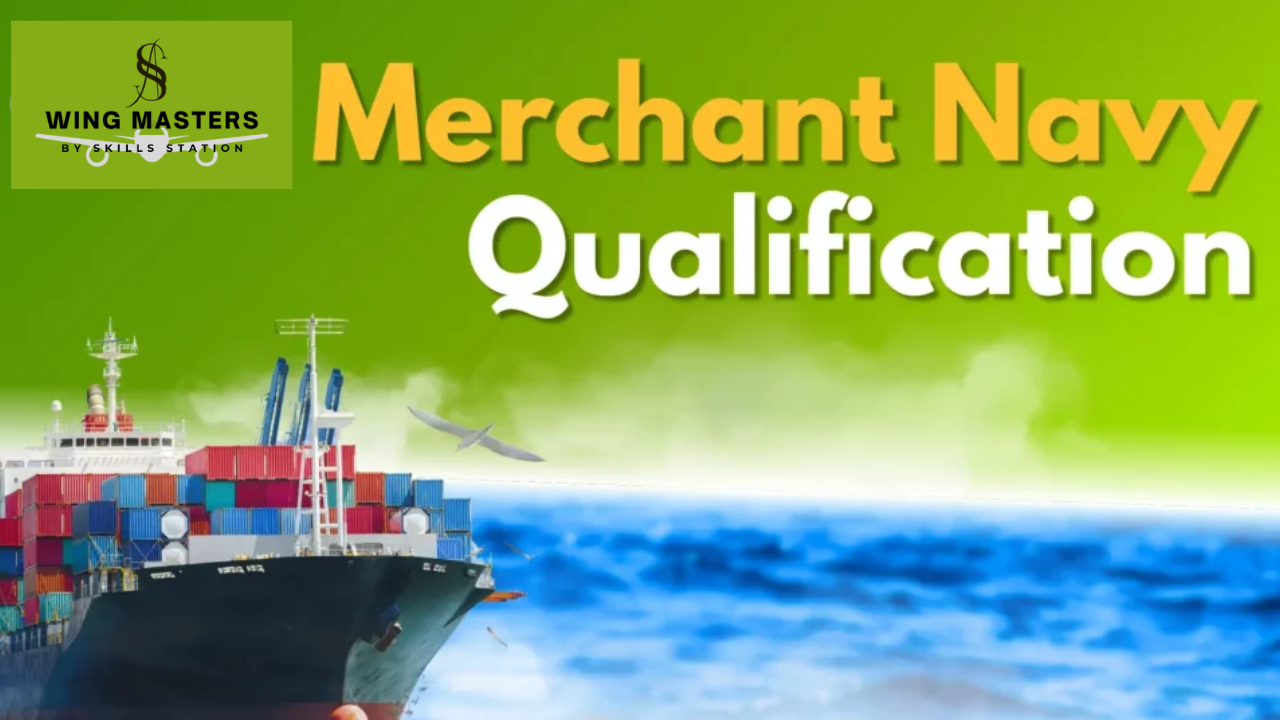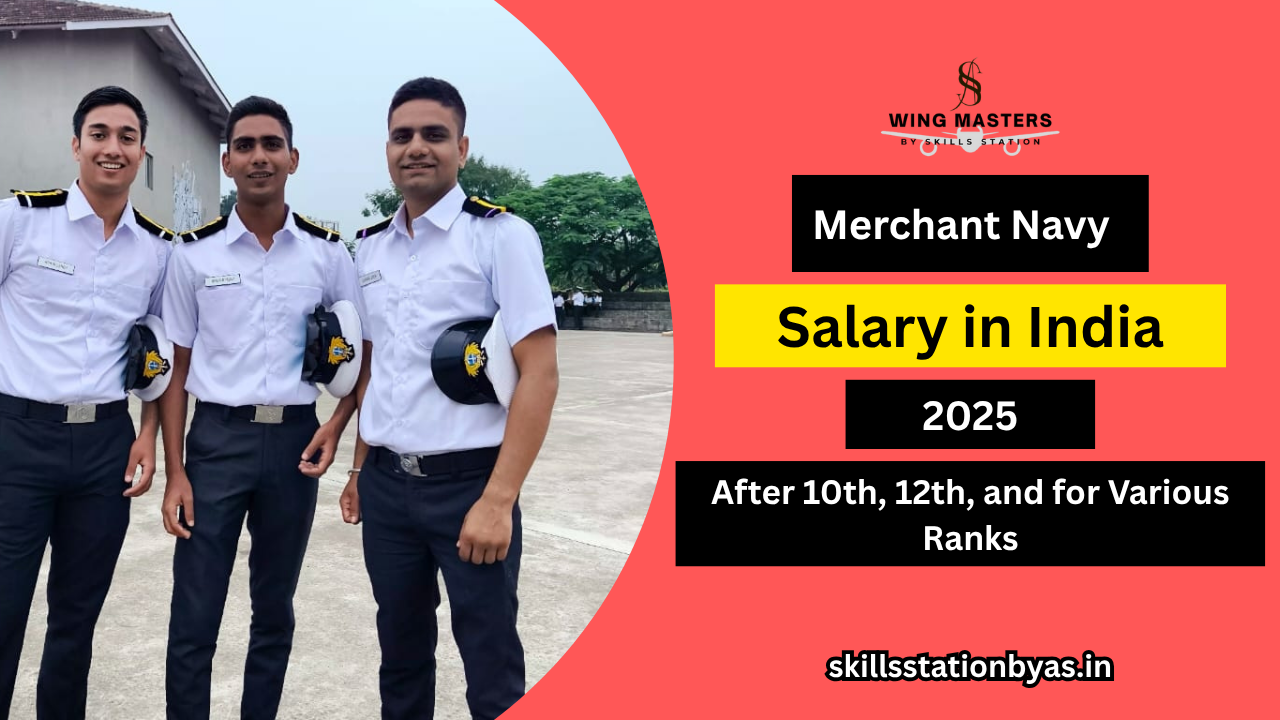
The merchant navy recruitment process opens the door to a dynamic and rewarding maritime career. From application to final placement, each stage demands the right qualifications, preparation, and awareness of industry standards. Whether through IMU-CET, company sponsorship, or direct intake, understanding how recruitment works is essential for aspiring cadets.
At SkillsStation, we offer streamlined insights, preparation support, and regular updates to help you navigate the competitive merchant navy landscape. With our guidance, candidates can confidently prepare for every phase of the recruitment journey.
What Is Merchant Navy Recruitment?
Merchant navy recruitment refers to the official process by which maritime companies and institutes select candidates for various seafaring roles. These can range from deck cadets and marine engineers to electro-technical officers. Recruitment is conducted through exams, sponsorship programs, and direct interviews.
Applicants must meet eligibility requirements, pass medical exams, and clear interviews to qualify. The process typically begins after submitting an application form either via IMU-CET or through private institutions and companies offering sponsorships.
Merchant Navy Qualification
The most fundamental aspect of merchant navy qualification is your educational background. To participate in merchant navy recruitment, candidates must fulfill certain educational and physical requirements. These include:
For Deck Cadets / DNS Course
10+2 with Physics, Chemistry, Mathematics (PCM) – 60% aggregate
English – Minimum 50% in 10th or 12th
Age: 17–25 years
For Marine Engineering
10+2 with PCM – 60%
B.Tech (Marine) or Mechanical Engineering (for GME)
Age: Up to 28 years (varies slightly by company)
For GP Rating & ETO
GP Rating: 10th pass with 40% and 40% in English
ETO: Diploma or B.Tech in Electrical/Electronics
Meeting these qualifications ensures eligibility for different levels of merchant navy recruitment, from ratings to officer positions.

Types of Merchant Navy Recruitment
1. IMU-CET Based Recruitment
The Indian Maritime University Common Entrance Test (IMU-CET) is one of the primary gateways. Candidates apply for UG and PG courses, and institutes conduct their admissions based on ranking.
IMU-CET-based merchant navy recruitment is standardized, giving access to well-recognized maritime academies affiliated with DG Shipping.
2. Company-Sponsored Recruitment
Shipping companies like Anglo Eastern, Maersk, and Synergy offer sponsorship programs. Here, candidates must:
Fill company-specific applications
Appear for written tests and interviews
Undergo DG Shipping medicals
If selected, candidates are sponsored for maritime courses and are usually guaranteed placement upon completion.
3. Private Institute Direct Entry
Some DG Shipping-approved private institutes conduct their merchant navy recruitment. Though not all provide placement guarantees, many have tie-ups with shipping companies. Always verify their credentials and placement history before enrolling.
Merchant Navy Salary Expectations
Salary is a major motivator in merchant navy recruitment. Here’s a basic overview based on roles:
| Rank/Role | Salary Range (INR/month) |
|---|---|
| Deck Cadet | ₹25,000 – ₹40,000 |
| Junior Engineer | ₹30,000 – ₹50,000 |
| Second Officer | ₹1.5 – ₹2.5 lakhs |
| Chief Engineer / Captain | ₹6 – ₹12 lakhs |
Keep in mind that Merchant Navy Salary is often tax-free (for NRI status holders) and can include benefits like travel, insurance, and global exposure.

Recruitment Process: Step-by-Step
1. Application Submission
Candidates must submit the appropriate merchant navy recruitment form either for IMU-CET, sponsorships, or direct admission. Ensure all documents (academic, ID proof, medical fitness certificate) are uploaded correctly.
2. Written Test
Tests typically cover English, Physics, Mathematics, and General Knowledge. Sponsored programs may also include psychometric and aptitude tests.
3. Interview Round
The personal interview is crucial in merchant navy recruitment. It assesses communication, clarity of thought, technical knowledge, and confidence.
Interview Tips for the Merchant Navy
Dress formally and maintain good posture
Brush up on basic physics and marine knowledge
Be clear about why you want to join the Merchant Navy
Be honest about strengths and weaknesses
Practice mock interviews with guidance from mentors or coaching centers
These interview tips for the merchant navy can help you stand out in front of maritime recruitment panels.
Merchant Navy Medical & Physical Requirements
All candidates must pass a medical test conducted by DG Shipping-approved doctors. It includes:
Vision test: 6/6 in each eye (unaided for deck cadets)
Color blindness test
Hearing and balance checks
Height and weight ratio compliance
Failing the medical test leads to immediate disqualification, even if the candidate clears the academic and interview stages of merchant navy recruitment.
Document Checklist for Recruitment
Before attending exams or interviews, keep the following documents ready:
10th and 12th mark sheets
Passport-size photos
Identity proof (Aadhar, Passport)
Birth certificate
Medical fitness certificate
Application printout or call letter
IMU-CET scorecard (if applicable)
Having these organized improves your chances during document verification in the merchant navy recruitment process.

Conclusion
Pursuing a career through merchant navy recruitment requires dedication, preparation, and knowledge of the right procedures. Whether you choose the IMU-CET path, a sponsored program, or direct entry through an institute, each route demands compliance with qualifications and standards. For updated guides and resources, stay connected with SkillsStation—your trusted partner for career clarity in the maritime field. If you’re seeking formal training, the best navy academy in Dehradun provides top-tier education and placement support for aspiring sailors.
FAQs on Merchant Navy Recruitment
Que 1: Can girls apply for merchant navy recruitment?
Ans: Yes, females can apply for officer-level positions provided they meet eligibility criteria and pass medical tests.
Que 2: Is IMU-CET compulsory for recruitment?
Ans: Not always. Private institutes and some company-sponsored programs have separate tests.
Que 3: How long does the recruitment process take?
Ans: Typically, 2–6 months, depending on the route (IMU-CET or direct).
Que 4: Do I need a passport before recruitment?
Ans: Yes, having a valid passport is essential before training or sailing begins.
